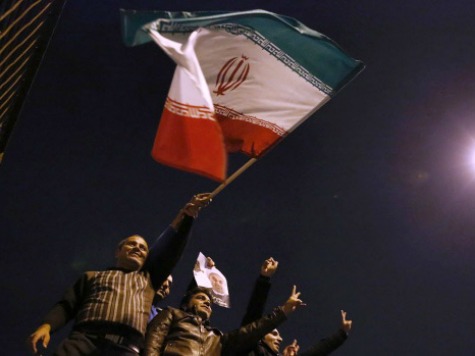In Tuesday’s Wall Street Journal, the indispensable Bret Stephens explained why an Iran deal–which he still regards as unlikely–would be worth less than the paper on which it is printed. Should President Barack Obama emerge, Neville Chamberlain-like, and wave the page on the tarmac, Stephens warns that the agreement will be highly technical, using the opacity of specifics to impress the West while delaying, then blocking enforcement.
There are other reasons to doubt the value of any deal with Iran. For one thing, Iran has defied UN Security Council resolutions on nuclear enrichment for a decade. The interim deal signed late last year, and the long-term deal now under negotiation, both allow Iran to enrich uranium up to a point. So Iran has already been rewarded for breaking the most serious international agreements–why should it behave differently in future?
Another reason an Iran deal would be worthless is that the regime may be violating even the interim deal under which talks are taking place. According to Reuters, some U.S. experts believe that Iran has violated the deal by developing technology for faster uranium enrichment, as described in the recent report of the International Atomic Energy Agency (IAEA). The uncooperative behavior of the Iranians makes it tough to know for certain.
Finally, there is the fact that the American bargaining posture has been terribly weak. The news that President Barack Obama sent a letter directly to Ayatollah Ali Khamenei, ostensibly offering to cooperate against Islamic State terrorists, possibly in exchange for a nuclear deal, leads the regime to believe that the U.S. is prepared to seek peace at any price. That, in turn, will invite violations of any future deal, regardless of the hopeful rhetoric.
Senior Editor-at-Large Joel B. Pollak edits Breitbart California and is the author of the new ebook, Wacko Birds: The Fall (and Rise) of the Tea Party, available for Amazon Kindle.
Follow Joel on Twitter: @joelpollak

COMMENTS
Please let us know if you're having issues with commenting.